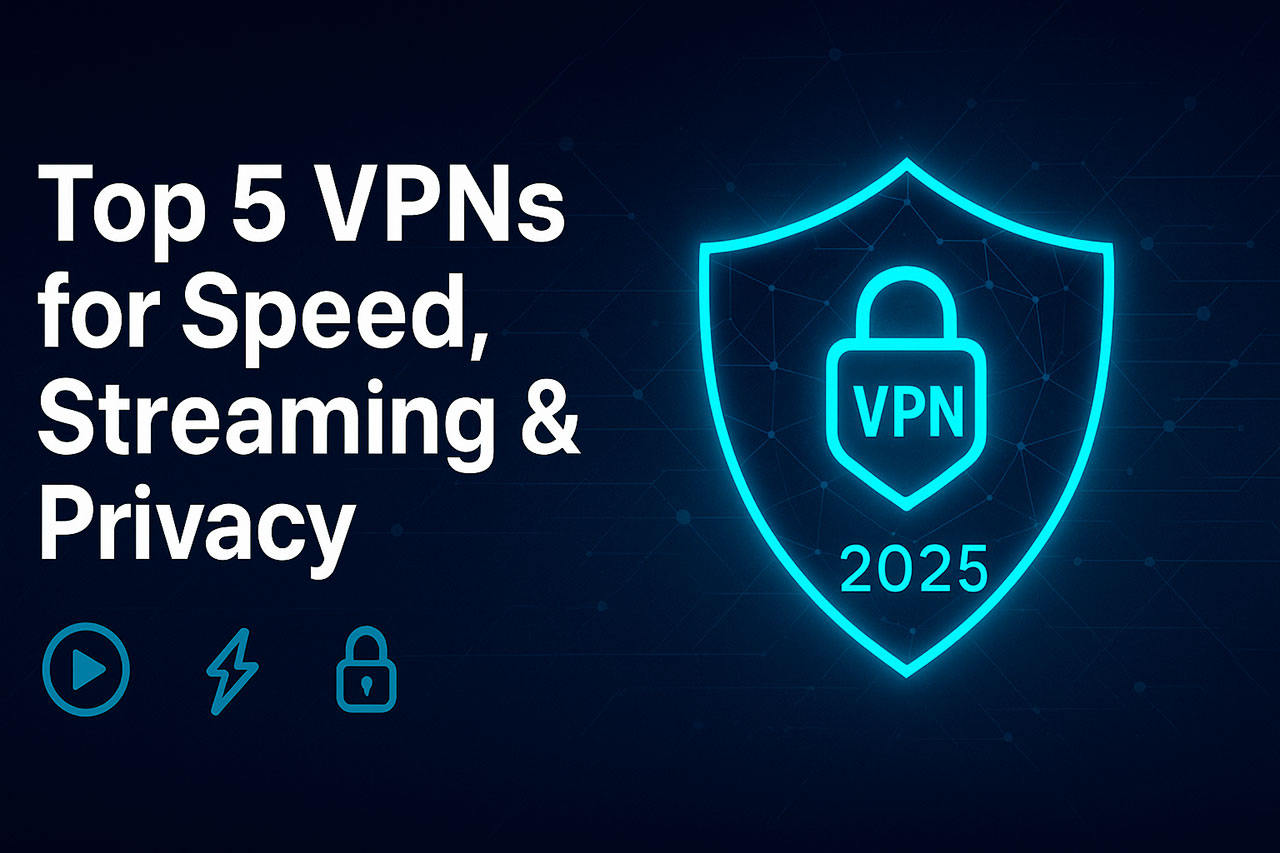What is a VPN?
A Virtual Private Network (VPN) is a service that encrypts your internet traffic and routes it through a secure server, masking your IP address and shielding your data from prying eyes. In 2025, VPNs are no longer just privacy tools — they’ve become essential for streaming, gaming, remote work, and bypassing geo‑blocks.
Why You Might Need One
- Privacy: Prevent ISPs, advertisers, and hackers from tracking your activity.
- Security: Protect sensitive data when using public Wi‑Fi networks.
- Streaming Freedom: Access Netflix, Hulu, BBC iPlayer, and more from abroad.
- Censorship Bypass: Stay connected in restrictive regions.
- Safe Torrenting: Download P2P content without exposing your IP.
Key Features to Compare
When choosing a VPN, look beyond the marketing. Focus on:
- Logging Policy: Strict no‑logs confirmed by independent audits.
- Protocols: Modern, fast, and secure — e.g., WireGuard, OpenVPN.
- Server Network: Wide coverage and optimized streaming servers.
- Speeds: Minimal drop from your base connection.
- Support: 24/7 live chat with knowledgeable agents.
VPN Myths in 2025
VPNs are sometimes misunderstood. For example, a VPN will not make you completely anonymous online, but it significantly raises the barrier against tracking. Also, free VPNs often come with severe limitations — from slow speeds to data harvesting.
Our Testing Methodology
We perform weekly speed tests across multiple continents, assess streaming access, inspect security implementations, and review privacy policies. Each VPN’s rating on this site reflects a combination of lab results and real‑world user feedback.
Bottom Line
Whether you’re streaming your favorite shows abroad, securing work data, or simply keeping advertisers at bay, a reputable VPN is a small investment with major returns in privacy and freedom. Our top pick, NordVPN, continues to lead thanks to its blend of speed, security, and reliability — but explore the full list to see which fits your needs best.

 Grab a long‑term plan from our top providers. Auto‑applied at checkout.
Grab a long‑term plan from our top providers. Auto‑applied at checkout.